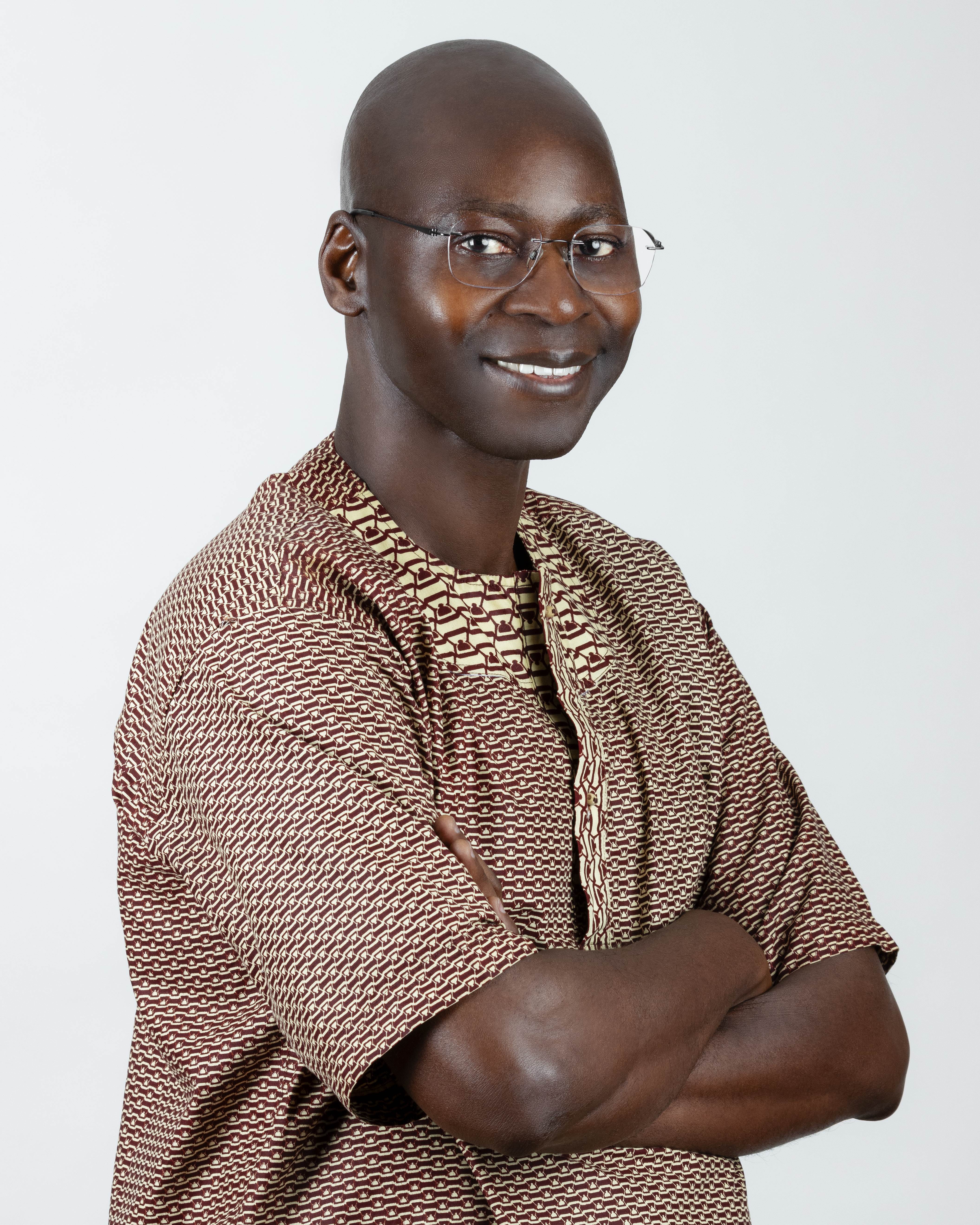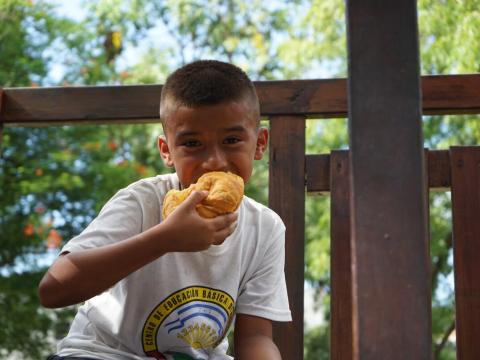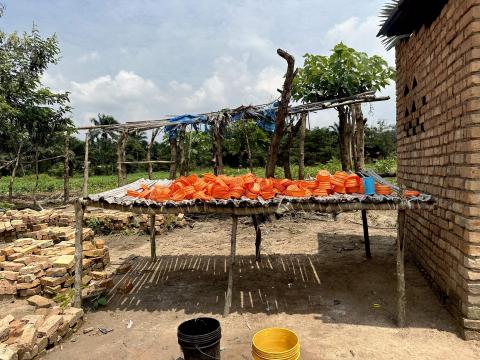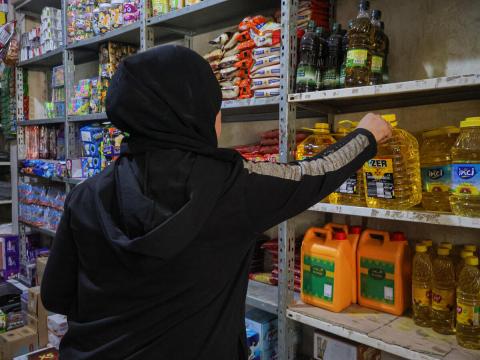
Father to father: Empathising with the challenges of fatherhood
Dr Jean Baptiste Kamate (JBK), a father of two, reflects on the current displacement crisis, empathising with the challenges fathers and their families face around the world due to displacement, hunger, and funding gaps in the humanitarian space.
“I used to tell my kids that a meal was ready, on its way, and we'd get to it soon. Keep silent; we'll get to it. I used to do [this] to make my children calm,” admits 55-year-old Amir, a father of three, who had to move his family away from their home in Herat, Afghanistan to keep them safe after he lost his livestock and agricultural livelihood due to conflict and violence.
Amir’s story reminds me of my own. But in my case, I was the child that went hungry. I saw the anguish on my father’s face when he saw the changes hunger left on my body. Today, I am a parent myself, and I shudder thinking of the pain my own father must have felt.
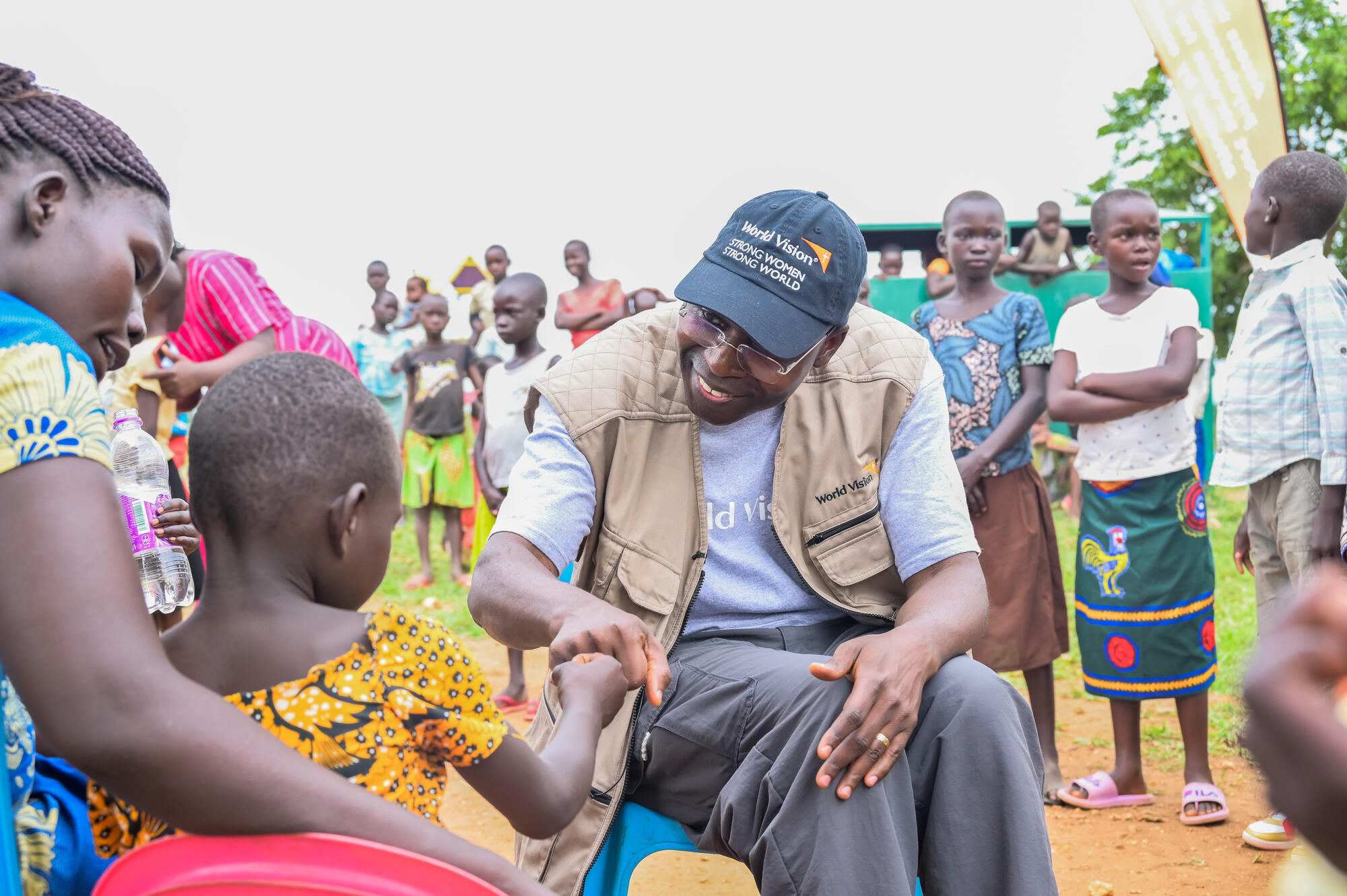
Having visited some of the most vulnerable places in the world over the last 25 years, I have learned that my parents were not alone in this struggle. Today, neither is Amir. I have regularly encountered fathers like him in my humanitarian work. These fathers, who desperately want to protect their families, are unwilling witnesses to their children teetering on the edge of starvation. My heart breaks for them and their families, millions of whom are dependent on food rations, often while living in unfamiliar places.
Even worse, World Vision’s new research on food rations shows that displaced families receive just a fraction of their monthly required calories through humanitarian assistance and can be cut from aid distributions altogether. This drastic reduction of necessary food leaves them with impossible choices and increases in child marriage, child labour, and mental health risks.
Instead of going to school, Amir’s son, Gul Ahmad, is now working as a shepherd, helping tend his family’s remaining livestock. At the young age of 13, he carefully measures out food for himself and the herd, a heartbreaking situation for any father to watch.
Unfortunately, despite the work of dedicated humanitarians, like my colleagues, and investment by the international community, the situation for Amir, Gul Ahmad, and millions of others affected by conflict and displacement remains dire. More than 117 million people have been displaced from their homes and forced to move to other parts of their country or outside their country due to conflict and climate-driven disasters – an all-time high. Humanitarian appeals are drastically underfunded, with just 38% of the US$56.7 billion needed in 2023 secured, and nutrition and food security response plans were only 36% and 39% funded. Other humanitarian sectors are even more underfunded, creating a crisis for families as well as putting children’s futures, like Gul Ahmad’s, at risk. They not only struggle to find enough to eat but also to get back to school and remain safe.
In addition to the physical costs of hunger, the experience of watching your child go hungry can heighten mental health risks for parents. In our study, parents and caregivers reported significant levels of fear, anger, hopelessness, disinterest, and inability to carry out daily activities. More than one in ten (13%) adults told us they feel so hopeless that they no longer want to carry on living all the time. The impacts of the ration cuts on mental health seemed to be the most severe for caregivers in Afghanistan, like Amir. Answers from respondents there indicated that almost all adults are at risk of mental health disorders (97%).
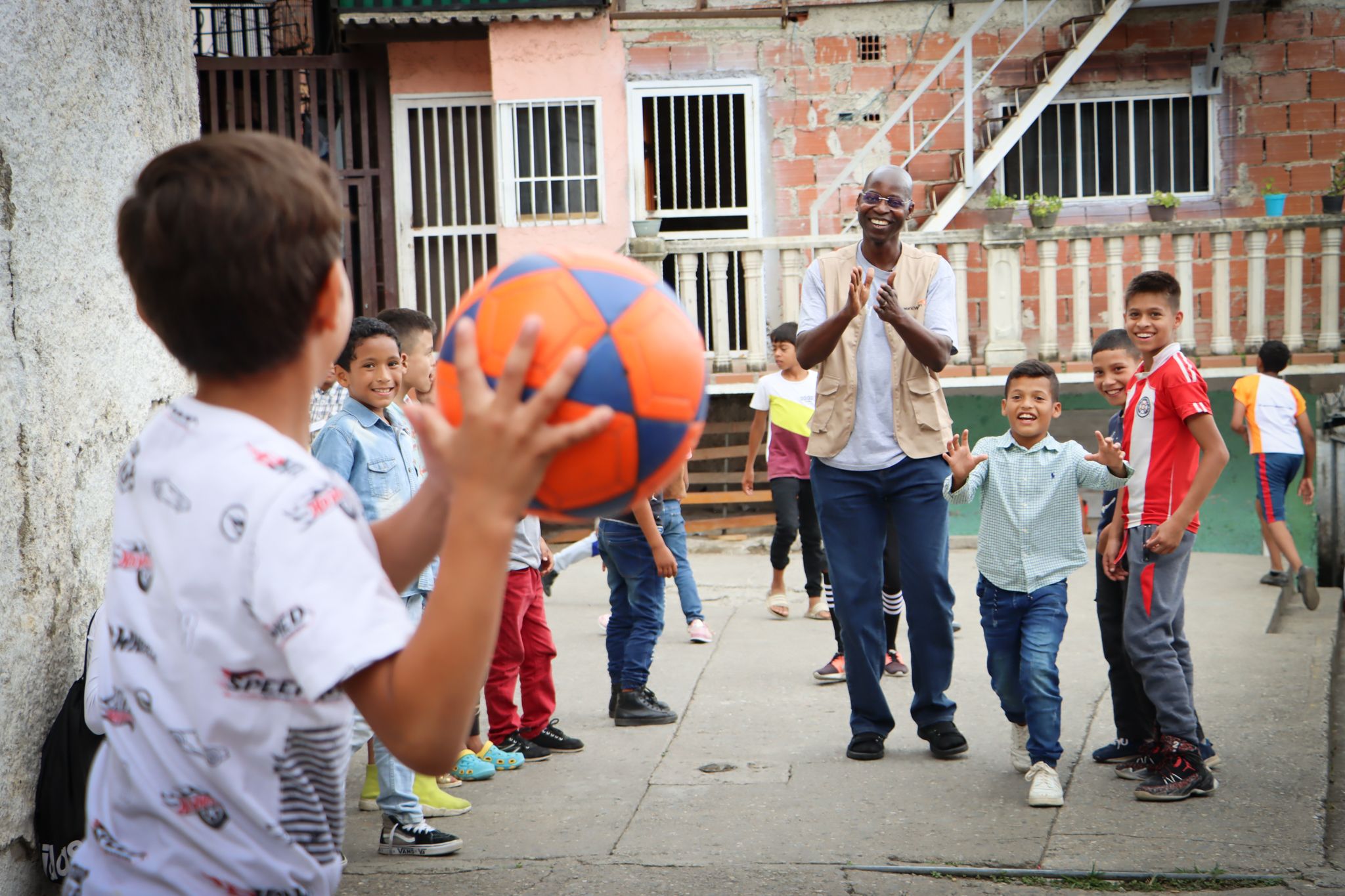
These families are calling for help to feed their households. “Our children are deprived of education, good health, clean water to drink, good food and other things that help them grow,” Amir explained to my colleague. “If the situation continues, our children will not be able to serve society because they are deprived of the basic facilities that a human being needs.”
This Father’s Day, as we celebrate the invaluable role of fathers like Amir, it's crucial humanitarians can extend our support to ALL parents and caregivers facing similar challenges. They require interventions that empower them to sustain their families amidst evolving circumstances. Take Joyce, a refugee in Bidi Bidi Settlement, Uganda, for instance. Through the provision of a small parcel of farmland, Joyce and her family have been able to mitigate the impact of food ration cuts by growing their own sustenance.
As United Nations (UN) Member States, key donors, and international non-governmental organisations (NGOs) come together to discuss strengthening effective humanitarian assistance during the Economic and Social Council’s Humanitarian Affairs Segment (ECOSOC-HAS) meetings later this month, my hope is that they recognise the dire repercussions that humanitarian appeals being chronically underfunded has on the most vulnerable, particularly children.
It is time for:
- decision makers to practically and definitively commit to ensuring adaptable, high-quality funding is available for joint humanitarian and development endeavours, especially those focused on critical food and nutrition programmes
- donors to utilise alternative funding channels, enhancing collective and collaborative efforts
- NGOs to explore innovative initiatives that help families to not only survive, but thrive, even amidst limited funding and resources.
Learn more about World Vision’s Global Hunger Response work here. Read our recently released report, Ration cuts: Taking from the hungry to feed the starving, that delves into the human cost of ration cuts and the actions that aid agencies are being forced to make due to funding shortfalls.
JBK is World Vision's Chief Field Operations Officer, who oversees 83 field programmes. He has always been a champion for poverty reduction, clean water and all children everywhere. Follow him on Twitter/X at @jb_kamate and LinkedIn.
